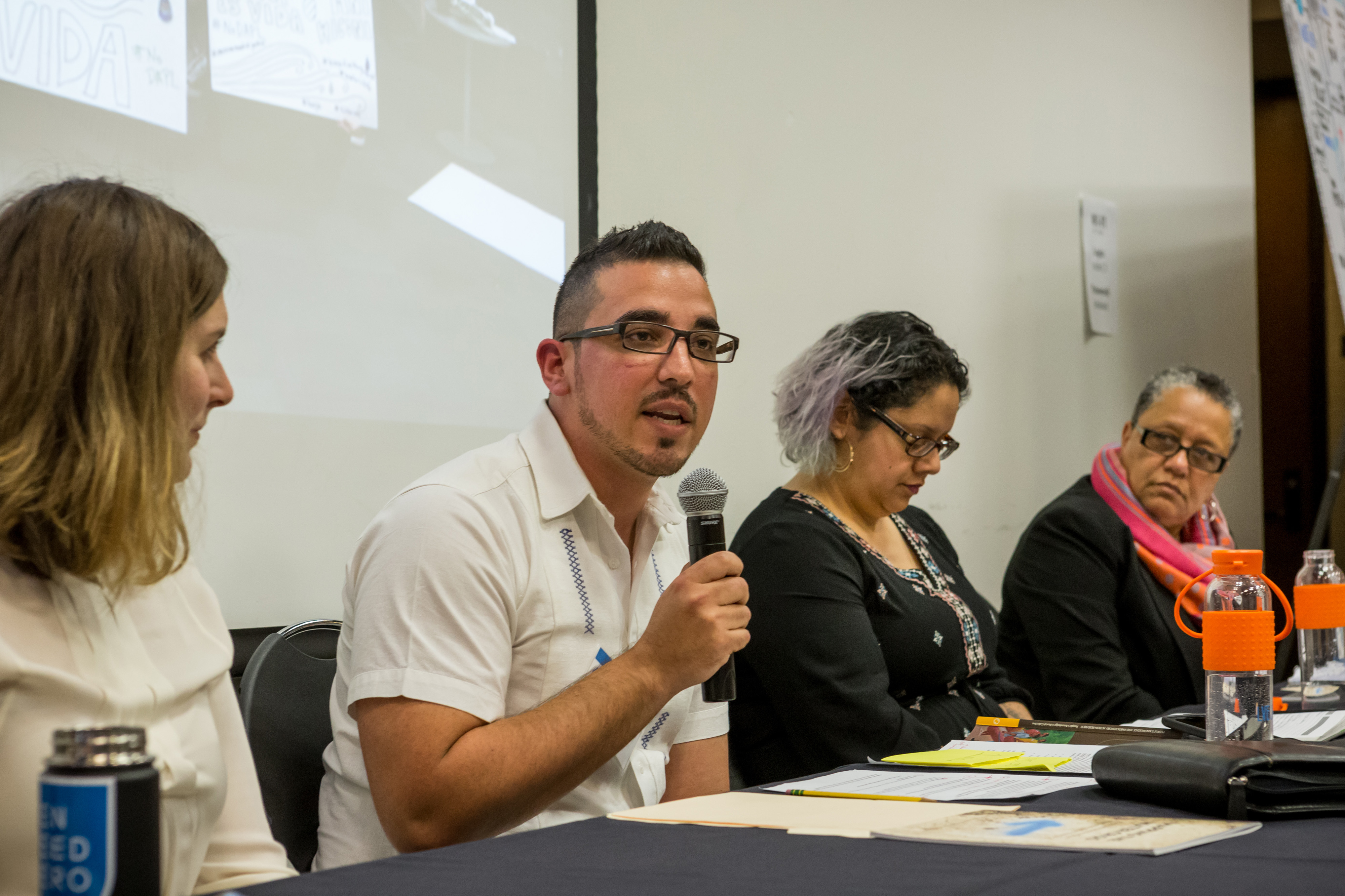This week, grassroots organizers, researchers, and political leaders from around the region convened at the University of Illinois at Chicago to discuss the pressing issues facing communities who rely on water from the Great Lakes. The two-day event, titled “Untrouble the Waters,” touched on an array of threats to the region’s water systems, ranging from lead poisoning in East Chicago to oil pipelines in Canada.
The summit comes at a tumultuous time for environmental advocates. In his proposed budget released in March, President Donald Trump planned to slash 97 percent of federal funding to the Great Lakes Restoration Initiative, a fund that works to preserve Great Lakes water from invasive species, industrial contamination, and other threats to the lakes’ ecosystem. The budget also included a 31 percent cut to the Environmental Protection Agency.
Rachel Havrelock, founder of the UIC-based think tank The Freshwater Lab, had been planning the event for the past year without taking into account the prospect of a Trump presidency. Now, she says, the new administration has “shaken everything.”
“Twenty-one percent of the world’s fresh water is here in the Great Lakes,” Havrelock said, emphasizing the importance of the lakes to the ecosystem and economy, and therefore the need to protect the water. “Now, I just don’t think we have a good partner in Washington to do that.”
Speakers stressed the importance of taking more local and regional action on water issues. One of the panel discussions explored how to generate more public visibility in an otherwise underexposed area, especially for grassroots organizations that spring up in communities most affected by environmental injustice.
Robin Amer, deputy editor of the Chicago Reader and panelist at the event, lamented the financial and time constraints for newsrooms around the country to produce more in-depth environmental reporting. “There are so many great and vital stories out there, but the number I can grab on any given day is very limited,” she explained.
To fill this media gap, the Freshwater Lab plans to launch its own media bureau to shed light on environmental issues from the perspective of community residents and grassroots leaders, instead of larger organizations or out-of-town experts.
“Often times there will be something happening in the community, but the organization and the leaders that have been at the forefront of that work are not the ones that are quoted in the story or are not the ones asked to speak as experts on that particular issue,” said Antonio Lopez, senior adviser of the Little Village Environmental Justice Organization, a group that has campaigned successfully against polluting factories and power plants.
“What would it look like for grassroots organizations to produce their own media and their own narratives and tell their own stories? We want to make that happen,” Lopez said.



